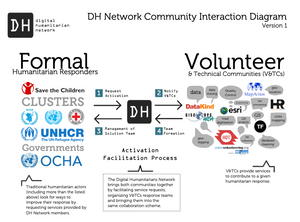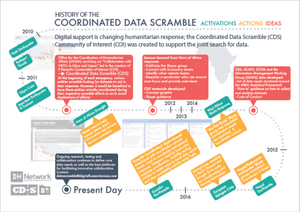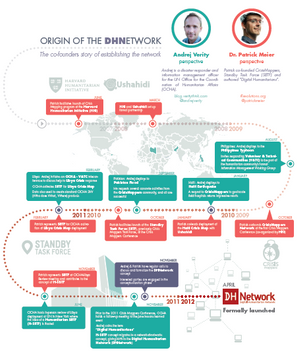Data Protection (Archive)
As Volunteer and Technical Communities (V&TCs) may process significant amounts of Personally Identifiable Information (PII) as part of their respective contribution to an activation of the Digital Humanitarian Network. Inherent to this is the need to approach personal data with the consideration for people’s privacy. Data protection is especially relevant when it is of a sensitive nature and inadvertent disclosure could result in harm or threat to the safety of those individuals concerned.
Some of the DHN members specifically integrate the principle of minding people’s privacy in their respective Codes of Conduct (e.g. the Geeks Without Bounds Code of Collaboration). As the exploitation of personal data entails a certain degree of responsibility, members of the Digital Humanitarian Networks are highly encouraged to underline the aforementioned principle in their respective Codes and to integrate it in their work processes, for example by agreeing on safeguards regarding data retention and collecting only relevant information. It follows that volunteers should understand and acknowledge their own importance when handling personal data and make enlightened decisions with regard to the degree of accessibility and the channels of communication used for sharing personal data by recognizing such a principle.
While considering the question of data protection, V&TCs may also wish to establish guidelines explicitly shared with the volunteers on the question of liability for members actions explaining how virtual responses can subject digital volunteers to tort liability.
Although no universal set of principles on the matter have been agreed to by the main actors of humanitarian relief, a number of pertinent organizations have developed their own Standards and Guidelines:
- The ICRC Professional Standards and Guidelines for Managing Sensitive Protection Information (page 77)
- The OECD Privacy Principles
- The International Organization for Migration Data Protection Principles
Further resources on Data Protection and liability:
- Collecting & processing personal data: what is legal? (European Commission)
- Guide to Protecting the Confidentiality of Personally Identifiable Information (National Institute of Standards and Technology)
- Responding To Liability: Evaluating and Reducing Tort Liability for Digital Volunteers (Wilson Center's Commons Lab)



